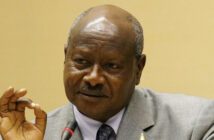The Central Bank of Nigeria has halted the sales of foreign exchange to Bureau de Change (BDCs) operators and letting commercial banks accept dollar deposits with immediate effect, its governor said on Monday, in an effort to shore up dwindling foreign reserves.
Nigeria, Africa’s biggest economy, an OPEC member state depends on oil sales for about 90% of its foreign reserves, has been hammered by a collapse in global oil prices, which has triggered a slide in its naira currency.
Godwin Emefiele said the sale of foreign exchange to bureaux de change would be discontinued because they were using up the country’s foreign reserves for illegal transactions and selling the dollar at 250 naira compared to the official central bank rate of 197 naira. The currency hit a record low of 285 per dollar on the unofficial market on Monday after the central bank’s announcement.
Emefiele said foreign reserves stood at around $28 billion compared with $37 billion in June 2014, and that the bureaux were depleting them at a rate of $28.4 million per week. “This is a huge hemorrhage on our scarce foreign exchange reserves, and cannot continue,” Emefiele told a news conference in the capital Abuja.
The decision to allow commercial banks to accept cash deposits of foreign currency reverses the restriction imposed last year when such deposits were banned to curb currency speculation.
It comes days after a visit by the head of the International Monetary Fund, Christine Lagarde, when she told lawmakers that the IMF did not support foreign exchange restrictions.
“By curbing the official sale of foreign exchange (FX) to BDCs, the CBN is probably signalling its tolerance for at least a segment of the FX market to be more market-determined, with the exchange rate based on demand and supply,” Razia Khan, head of Africa Research for Standard Chartered bank, said.
“The move to allow commercial banks to accept US dollar deposits may also be a step towards a liberalization.”




